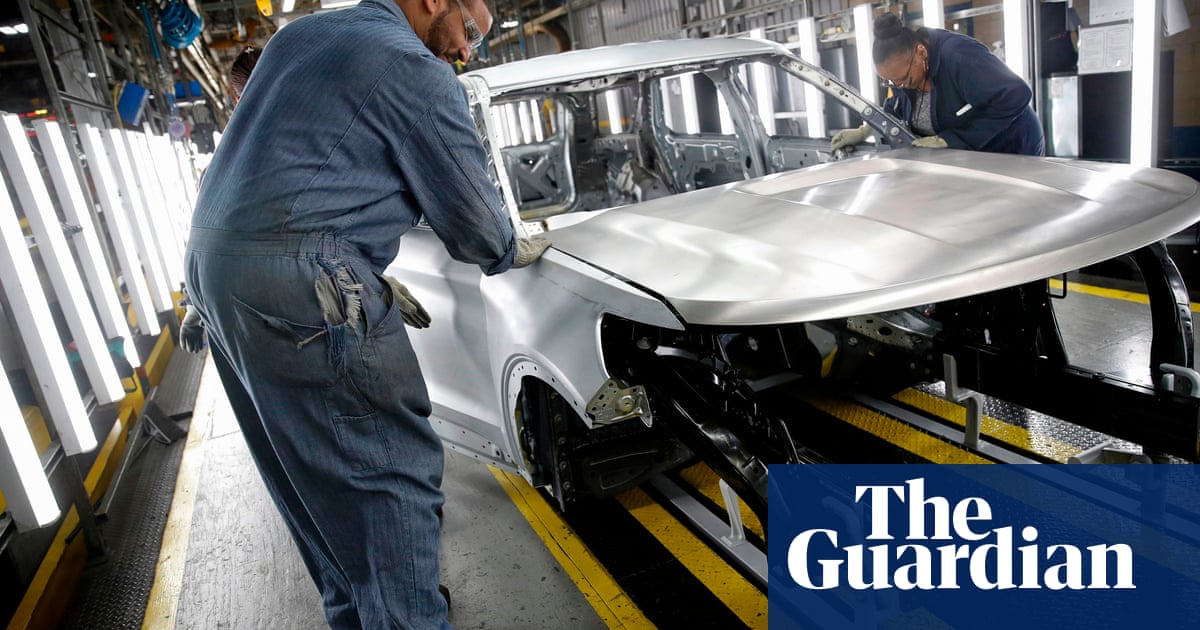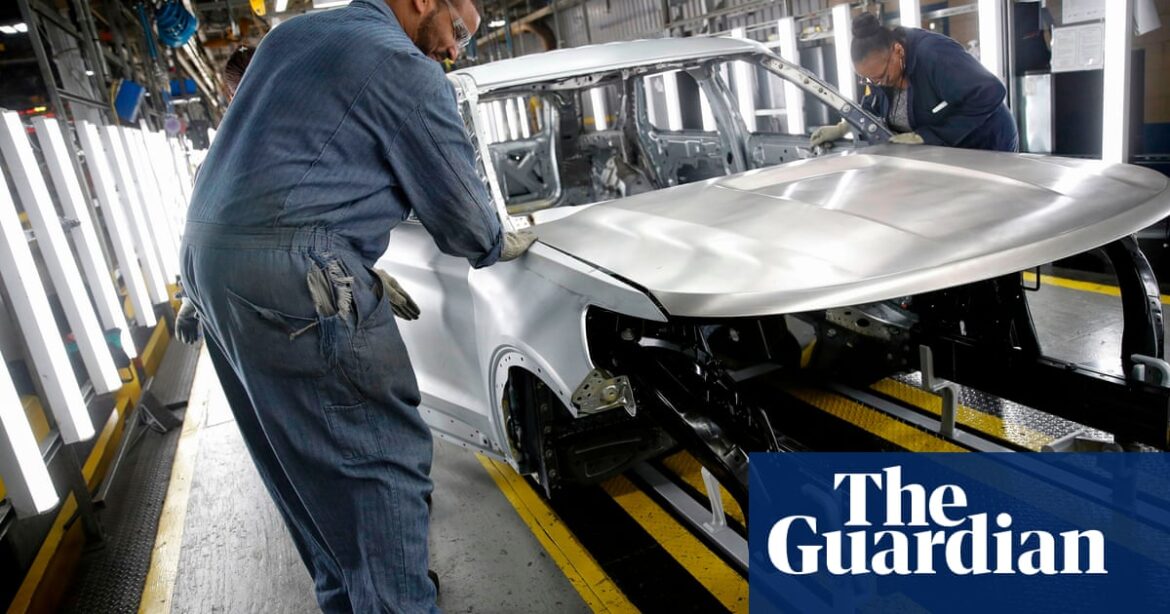
Donald Trump will unveil plans to water down his sweeping tariffs for US carmakers on Tuesday by curbing some duties on foreign parts, granting a reprieve to an industry that warned his strategy would hike costs for American manufacturers by tens of billions of dollars.
The White House trailed the deal on Monday and while details were scarce, Trump appears to be preparing to reprieve auto giants operating in the US from his aggressive trade strategy. Officials said he would sign an executive order later on Tuesday.
Trump was “committed to bringing back auto production to the US”, the US treasury secretary, Scott Bessent, told reporters, “so we want to give automakers a path to do that quickly, efficiently and create as many jobs as possible”.
It comes after industry analysis found that the US big three carmakers – Ford, General Motors and Stellantis – could face an increase of more than $42bn in costs as a result of Trump’s 25% tariff on the auto industry, with duties of almost $5,000 for the parts they import to make the average car made in America.
“President Trump is building an important partnership with both the domestic automakers and our great American workers,” the commerce secretary, Howard Lutnick, claimed in a statement. “This deal is a major victory for the president’s trade policy by rewarding companies who manufacture domestically, while providing runway to manufacturers who have expressed their commitment to invest in America and expand their domestic manufacturing.”
The move means car companies paying tariffs would not be charged other levies, such as those on steel and aluminium,, according to the Wall Street Journal, which first reported the development.
Carmakers would be able to secure a partial reimbursement for tariffs on imported auto parts, based on the value of their US car production, under the plans. Cars made outside the US will still be subject to Trump’s tariffs but will be exempt from other levies.
Trump is due to travel to Michigan on Tuesday for a rally marking his first 100 days in office. His return to the White House – and hopes to reshape the global economy with steep tariffs – swiftly ushered in a new period of economic volatility for firms in the US and overseas.
After imposing 10% tariffs on imports from much of the world, the Trump administration plans to speak with 17 trading partners “over the next few weeks”, Bessent said, acknowledging that Trump – who has jolted longstanding US relationships with a string of markets – creates “strategic uncertainty” in negotiations.
“As we start moving forward announcing deals, then there will be certainty,” said Bessent. “But certainty is not necessarily a good thing in negotiating.”
After rapidly raising tariffs on Chinese products to 145%, Trump’s officials maintain that the risks for China are high – while playing down the potential impact in the US, despite widespread concern over potential shortages and price increases.
after newsletter promotion
Bessent, who claimed China could shed 10m jobs “very quickly” if the tariffs are maintained that their current level, denied the US could face disruption.
”I wouldn’t think that we would have supply chain shocks. I think retailers have managed their inventory in front of this,” he said. “I speak to dozens of companies, sometimes daily, but definitely weekly. They know that President Trump is committed to fair trade, and have planned accordingly.”
But with consumers in the firing line, reports that Amazon might start disclosing the cost of tariffs on its platform drew a sharp rebuke from the White House. “This is a hostile and political act by Amazon,” claimed the press secretary, Karoline Leavitt, following a call with Trump.
Reuters contributed reporting
Source: theguardian.com



